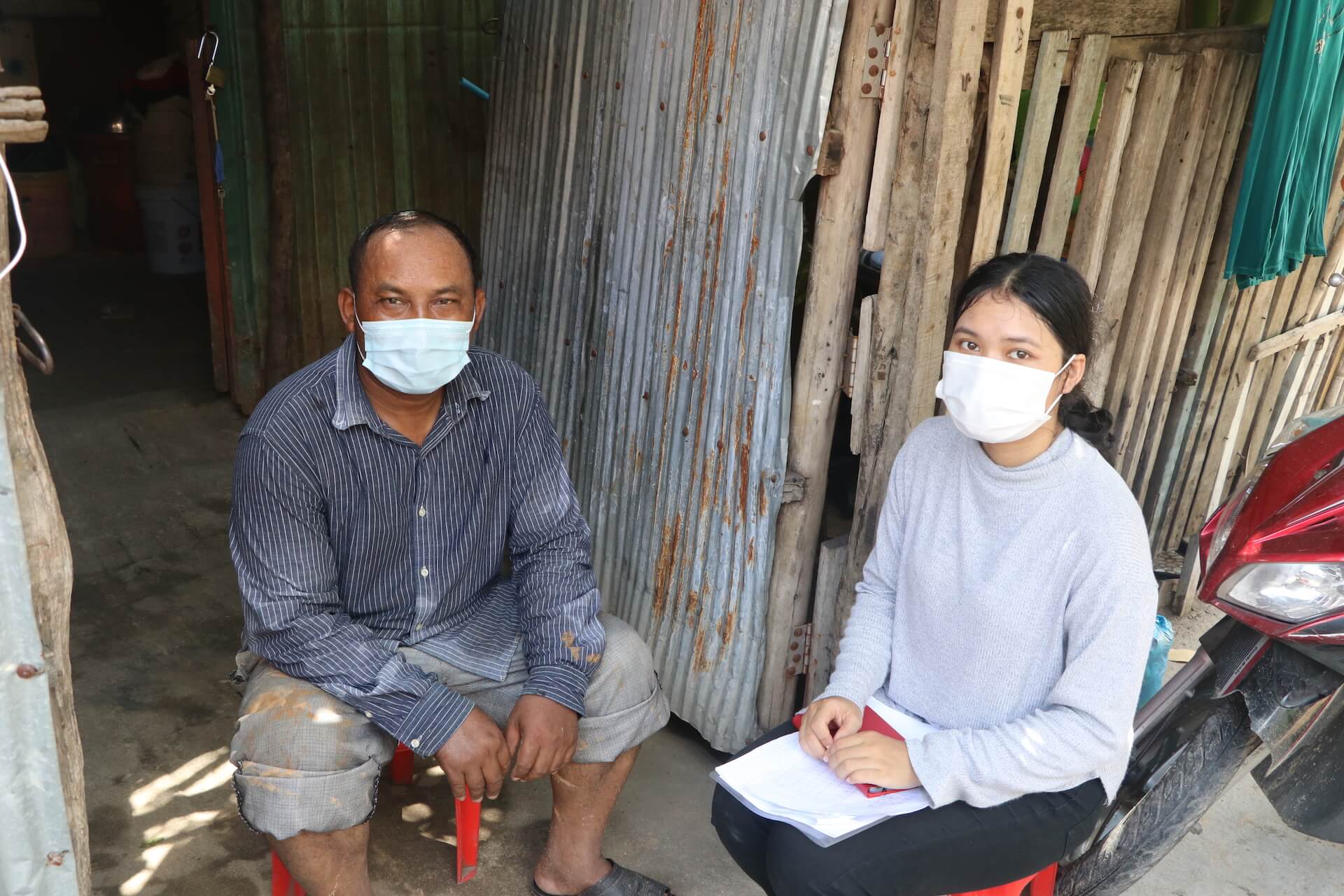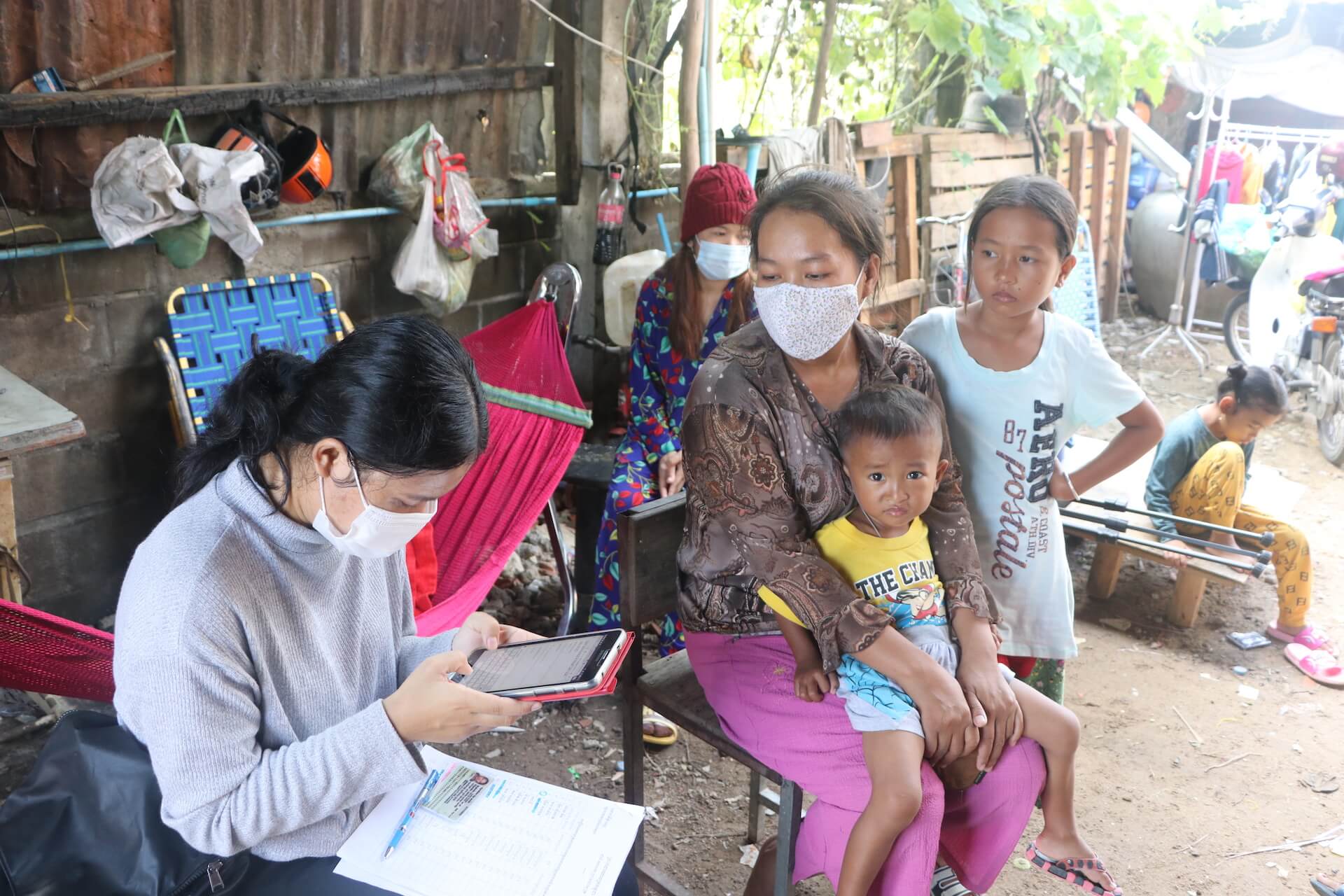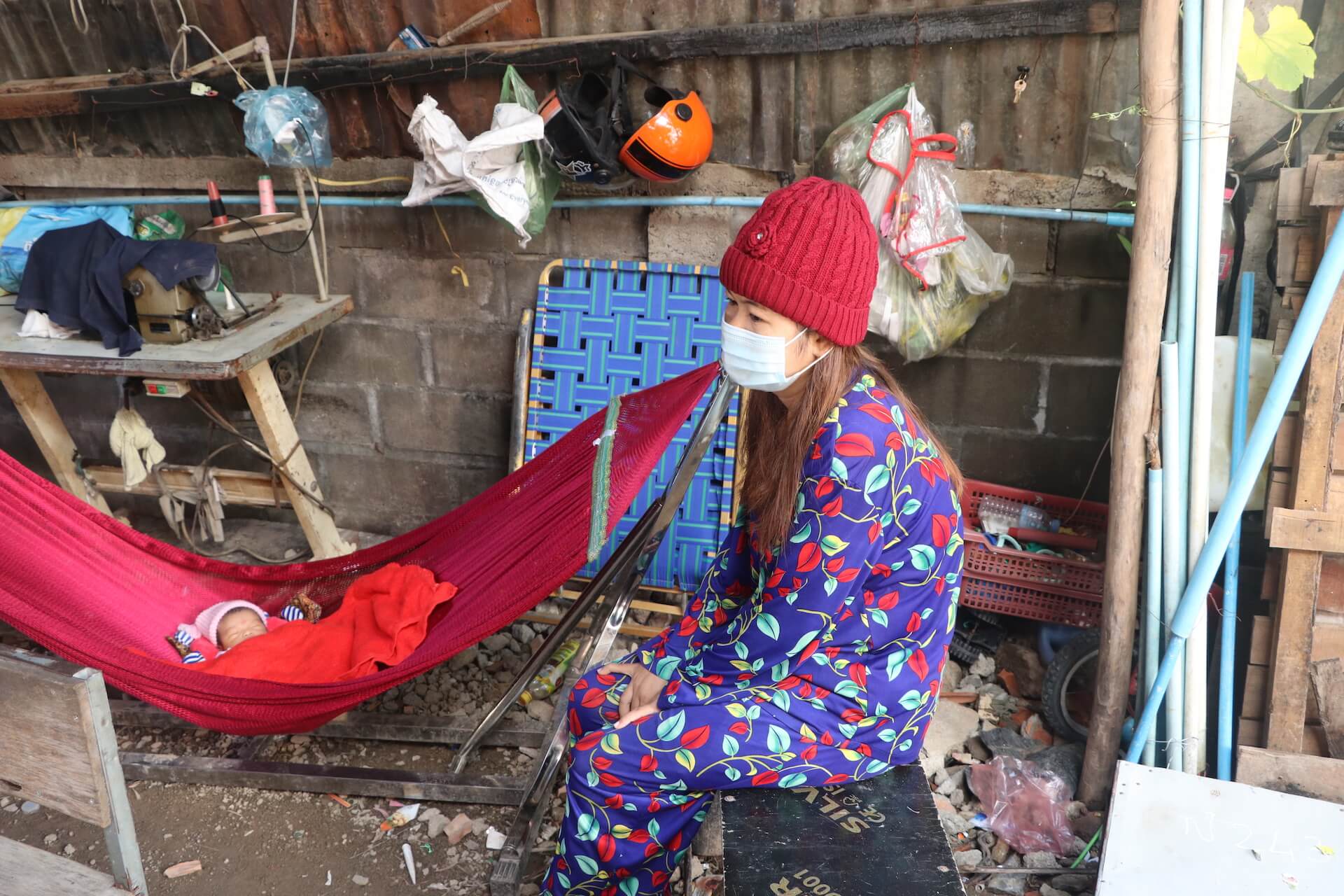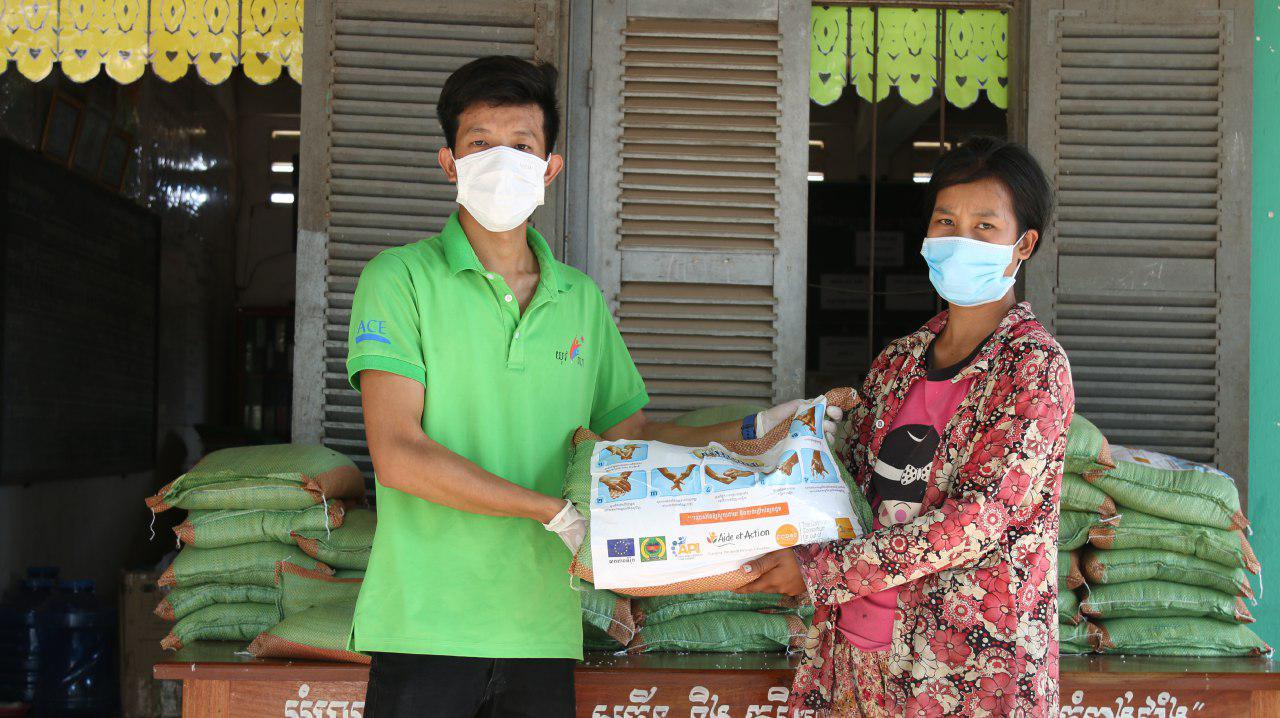As a first reaction to the difficulties Cambodians are confronted with, API has launched a rapid response initiative in partnership with the Wilde Ganzen Foundation in the Netherlands and the Kampong Thom based Environmental and Health Education Organisation (EHE). For obvious reasons, we chose to focus this intervention on the most vulnerable of our fellow citizens, and we are therefore offering one-time assistance packages in cash and basic consumption goods to very low income households in the districts of Sen Sok (Phnom Penh) and Sandan (Kampong Thom). More than 3500 Cambodians will benefit from this initiative. Our selection of the beneficiaries is based on both official data from the local authorities (the so-called ID-Poor classification), and detailed interviews we have been running in each and every one of these households.

Although we do not have a humanitarian mission, nor the profile or experience of a charitable fund, we consider it our duty to intervene in the current situation. This is because, unfortunately, the current crisis does not seem to be merely a temporary public health challenge that could be eventually overcome at a limited social cost. And unlike, say, a natural disaster, it is not limited to a particular region in a clearly defined time frame. Much rather, we are talking about the conjugated effects of various factors leading to long-term negative consequences on the entire society and perhaps even to structural problems it will take many years to solve. Previously unthinkable travel restrictions have basically put an end to international tourism, thus leading to numerous closures of hotels, restaurants and entertainment venues, severely affecting one of the main pillars of the Cambodian economy and the livelihoods of hundreds of thousands, if not millions of citizens whose regular income depends on a functional tourism sector. The sudden drop in the demand for clotheware in the more developed countries has in turn forced many Cambodian garment factories to suspend their activities indefinitely, thereby hitting the number one export oriented local industry. The real estate market is starting to feel the heat as well, with obvious consequences for construction companies and their numerous employees. Finally, the disruptions and the unpredictability of the supply chains are yet another economic factor structurally affecting all business sectors.

On the other hand, it is quite clear that the current crisis has caught Cambodia unprepared, in a number of different ways. First and foremost, our country still doesn't have a social protection system covering the most vulnerable of its citizens. This is a problem throughout the region, as well as in many other developing countries around the world, but in Cambodia, which has only experienced sustained economic growth over the past two decades, this issue has only now become a topic of public debate. Specific solutions need to be identified, taking into account the reality on the ground: the considerable size of the informal sector, the relatively low average age of the population, and also the high rate of private indebtedness, which is currently posing a very serious challenge to the livelihoods of individual households, as well as to the cohesion of society as a whole. Here, it is quite obvious that reforms are needed, and things cannot continue in the same unsustainable way they used to be before the crisis.

At API, we are constantly following the developments in our target areas and trying to identify further areas where intervention is needed. During the peak months of the public health situation, we worked from home, and we have also initiated an ambitious process of reviewing all our programmes and projects in order to see what needs to change, concerning both the mere possibility of our current activities, and, most importantly, from the point of view of our final beneficiaries and project partners. One of the first conclusions we have drawn is that we need to embark on a journey towards much more and much faster digitalisation than we were previously reckoning with. We are also working on developing new projects in order to face the new challenges, building on our vast experience at the grassroots level, as well as with local public services. We believe in social solidarity as an essential precondition of a broad, equal and democratic participation in public decision making processes. Only if we work together and attend to each other's needs can we hope to find the best solutions for the current crisis.


